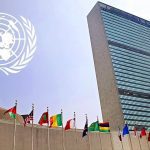Egypt concluded its second legislative elections since the 30 June 2013 Revolution in December. The voting, held in several phases for the House of Representatives and the Senate, overcame various challenges, not least being the exceptional circumstances related to the Covid-19 pandemic.
Some observers tended to reduce the outcome to a Mustaqbal Watan Party “landslide,” ignoring the implications of other results. Although Mustaqbal Watan (Future of the Homeland) obtained 463 seats in the legislature (147 in the Senate and 316 in the House), the remaining 433 seats, or 48.3 per cent of the total, are distributed among other parties (16 in the Senate and 12 in the House).
Independents won a total of 180 seats, 95 in the Senate and 85 in the House, or 20 per cent of the total, making them the largest parliamentary bloc after Mustaqbal Watan. As a result, while the latter party indeed has a majority, this is far from the super majority of two thirds of the seats needed to pass laws of a constitutional nature.
Mustaqbal Watan also did not have to rely exclusively on a coalition list to obtain its majority, and it won more seats reserved for individual candidates than those it won in constituencies reserved for electoral lists. Of the 316 seats the party gained in the House, 171, or 54 per cent, were won by its candidates running on individual tickets.
Overall, the party won 61 per cent of the seats reserved for individuals, making it the most successful in the individual candidacy system. This also means that the party’s performance in this system was nearly three times better than it was in 2015, when it won 24 per cent of the individual seats.
Since then, Mustaqbal Watan has tripled the size of its grassroots presence, confirming the predictions made five years ago regarding its prospects of success.
If this performance was a major achievement for the party in its own right, it also sent ripples through Egypt’s political life and sounded an alarm. The party’s success in broadening its grassroots presence is a sign of the vacuum that had prevailed earlier, in large measure due to the skeletal nature of most of the other political parties.
Of the 104 political parties in Egypt, only 36 had support bases large enough to field candidates and even then only in relatively few numbers in fewer electoral zones. Some long or well-established parties have been severely weakened, as has been the case with the Wafd and Tagammu (Progressive Rally), Al-Misriyin Al-Ahrar (Free Egyptians) and the Egyptian Democratic Parties.
Will Mustaqbal Watan’s success spur the country’s other parties into much-needed introspection and reform, or will they continue their decline? Will they rally in order to overcome the forces of fragmentation and set aside smaller differences to merge into larger parties in order to better promote their main priorities, enriching the country’s political life in the process? Or will schismatic forces and narrow interests prevail, after which they will likely blame Mustaqbal Watan for their failures?
If so, these parties will likely meet more setbacks while Mustaqbal Watan moves on to further successes.
NEW BLOOD
The 2020 parliamentary elections brought other changes to the composition of the House, such as the large and unprecedented shift in the ratio of independents to political parties.
It is good to see a diversity of political parties beneath parliament’s dome, something which only really began with the 2015 elections. Prior to the 25 January Revolution, parliament was heavily dominated by the former ruling National Democratic Party (NDP), while only two or three other parties served as feeble counterparts. Today, new MPs, whether from the political parties or independents, make up at least three-quarters of the members of the recently elected parliament.
Around 76 per cent of the members of the previous parliament either lost their seats or did not run. This, too, is an unprecedented phenomenon. It used to be the case that the same faces would often reappear from one parliament to the next, as though once someone was elected to parliament, he was there for good.
Many of the new faces in the 2021-2026 parliament are young people. They may have no previous parliamentary experience, but they are keen to make their mark. They understand that they will need to show that they have earned the confidence of those who voted for them, since if not they may meet the fate that met the many MPs that were voted out of parliament this time around in five years’ time.
Contrary to what is sometimes believed, voters do keep track of how their representatives perform in parliament, and they know they have the ability to bring them to account in the next elections. The parliamentary scene may thus be poised for further positive changes thanks to the voters’ essential power to put political parties and political players to the test.
WOMEN’S REPRESENTATION
Although women’s representation in parliament scored new inroads in this election, there was also a negative development.
Despite the large participation of women in the polls, there was a sharp decline in the number of women fielding themselves as individual candidates. Only six, or 1.7 per cent, of the 347 women who ran for seats reserved for the individual ticket system managed to enter the new parliament. On the other hand, thanks to the constitutional rule that 25 per cent of the candidates on electoral lists must be women, 142 women acquired seats in constituencies based on the list system.
Together with the above-mentioned six, women now hold a total of 148 seats in parliament, or nearly double the number elected to the 2015 parliament, which was 75 – 19 as individual candidates and 56 on an electoral list.
Bear in mind, too, that women’s representation in the 2015 parliament was far greater than that in the 2011 parliament, which was dominated by the notoriously misogynistic Muslim Brotherhood and Salafis. Only 1.8 per cent of MPs in the latter parliament were women, the lowest rate in a century.
PEACEFUL CAMPAIGN CLIMATE
Despite the repercussions of the Covid-19 pandemic, the 2020 campaigns proceeded as smoothly and peacefully as the 2015 elections, and perhaps this has been one of the defining features of elections since 30 June 2013.
The 2020 elections confirmed that the era of intimidation and, indeed, sometimes outright thuggery in front of polling stations is a thing of the past, together with the exploitation of religious discourse in campaign propaganda, the use of houses of worship for campaign purposes, and the nepotistic allocation of government services and facilities to certain candidates.
The reports submitted by electoral monitoring agencies were virtually free of instances of serious electoral violations that could have impacted on the results. As for the much talked about issue of political money, there is no denying that it existed. But the reports ignore the fact that government agencies, including the bodies that organised the elections, did their best to counter it. Ultimately, it will take a fundamental change in the culture of candidates and voters alike to put an end to it.
But there is no concrete proof that any illicit uses of campaign funds worked to increase the votes for any candidate. There is no way that any candidates can confirm that the people they bribed actually cast their votes for them.
THE OPPOSITION
One allegation, as the speaker of the Senate put it, was that the newly elected parliament would lack a genuine opposition and that thanks to its control of 53 per cent of the seats, the Mustaqbal Watan Party would be merely another version of the former ruling NDP.
But before passing judgement, it would be wiser for people to wait until the parliament convenes and then to observe how lawmakers actually conduct themselves, including those belonging to Mustaqbal Watan.
The ideological differences between this party and others are also not as great as the critics who level this accusation might like. Indeed, they envision an opposition that may not necessarily serve the public good as much as it serves to promote them as individuals. The notion that a proper parliament is a battleground in which the aim of any opposition worth its salt is to bring down a prime minister or a government is a hackneyed one. The legislature has many other mechanisms to monitor the executive and exercise its oversight. How it brings these mechanisms into play is the key to its performance.
The charge that Mustaqbal Watan is just another version of the NDP, is unfounded. While it may be pro-government, it is not the president’s party, as was the case with the NDP. Nor does its majority in parliament come anywhere near that of the NDP, which controlled some 80 per cent of the seats.
We should also recall that it was Mustaqbal Watan that took the initiative to create a broad-based 12-party coalition, which could never have allowed it to gain 80 per cent of the seats. The political arena in Egypt has changed so much during the past decade that it no longer has room for another edition of the NDP.
The 2015-2020 parliament came under intense pressure despite the unfavourable circumstances it had to contend with. Even so, it managed to realise the stability that the Egyptian state and society needed under such circumstances. The hope now is that the new parliament will be a crucial asset in achieving the goals of the Sustainable Development Strategy: Egypt Vision 2030.
As the majority party, Mustaqbal Watan will bear the brunt of this, but the other parties and the independents will also need to do their part. Reaching such goals requires a collaborative spirit among the public, the press and all the institutions of government.













